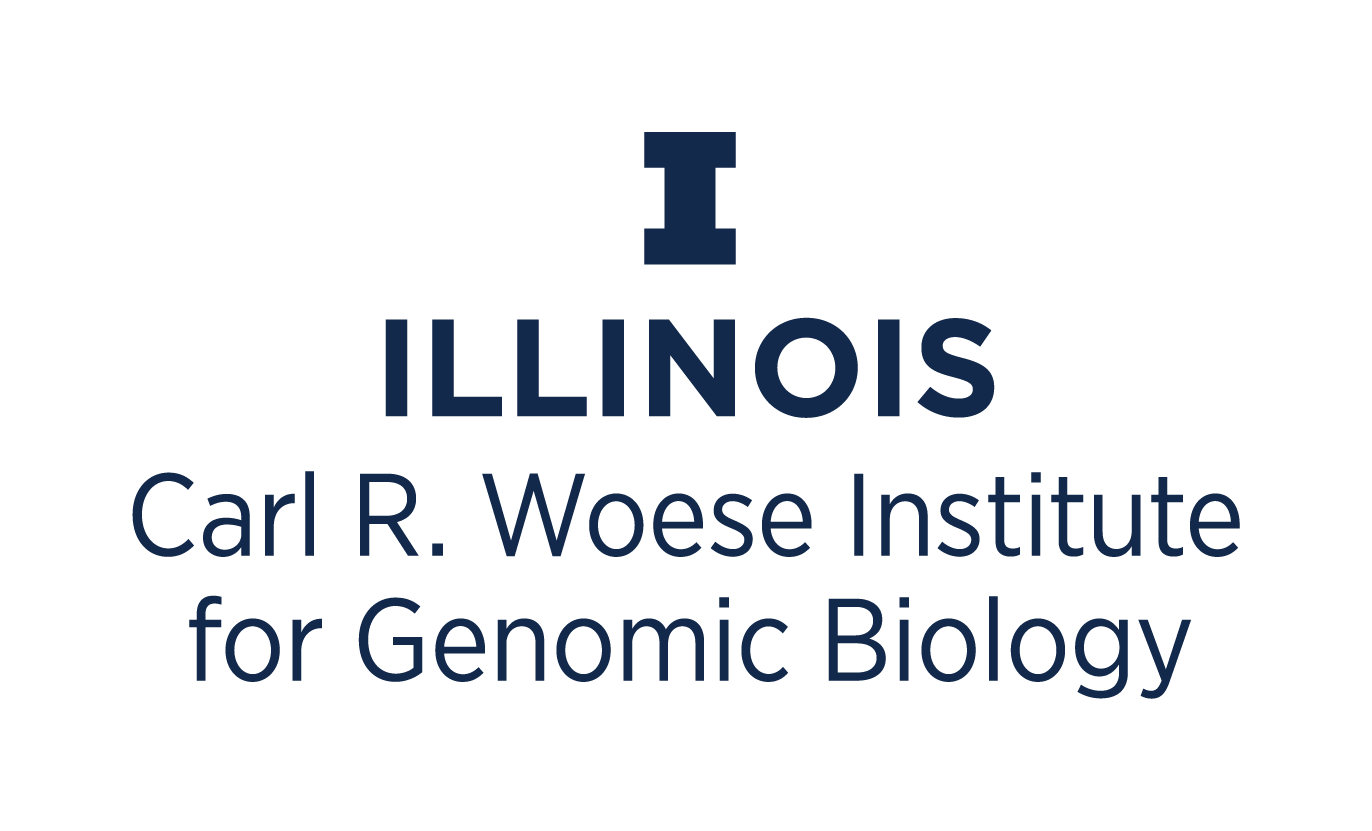HPCBio and NCSA changing genetic medicine in Africa
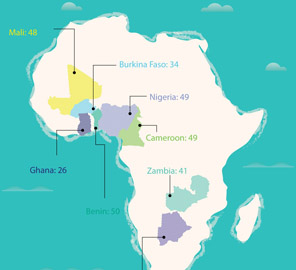 A collaboration including the HPCBio group, led by Director of Bioinformatics Victor Jongeneel, and NCSA is helping change the way genetic medicine is researched and practiced in Africa.
A collaboration including the HPCBio group, led by Director of Bioinformatics Victor Jongeneel, and NCSA is helping change the way genetic medicine is researched and practiced in Africa.
Illinois group to study brain health as part of NIH BRAIN Initiative
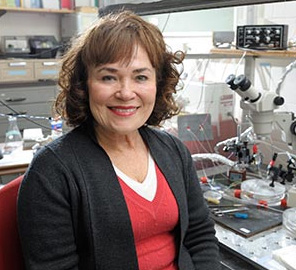 Martha Gillette, professor of cell and development biology, and colleagues to develop an analytical platform with new diagnostic and therapeutic possibilities.
Martha Gillette, professor of cell and development biology, and colleagues to develop an analytical platform with new diagnostic and therapeutic possibilities.
Can male prairie voles blame promiscuity on poor memory?
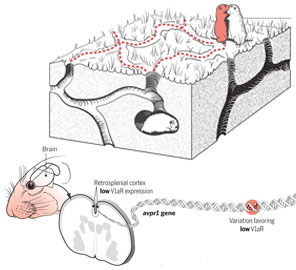 IGB Director Gene Robinson remarks in a Science Perspective on a recent study showing male prairie voles who roam widely looking for mates have poorer spatial memory than more faithful male counterparts.
IGB Director Gene Robinson remarks in a Science Perspective on a recent study showing male prairie voles who roam widely looking for mates have poorer spatial memory than more faithful male counterparts.
Scientists uncover mechanism that propels liver development after birth
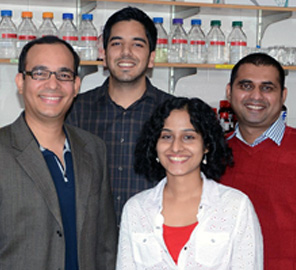 Researchers report that liver cells utilize a mechanism called 'alternative splicing,' which alters how genes are translated into proteins during the critical period of postnatal organ maturation.
Researchers report that liver cells utilize a mechanism called 'alternative splicing,' which alters how genes are translated into proteins during the critical period of postnatal organ maturation.
Wimps or warriors? Honey bee larvae absorb social culture of hive
 IGB Director Gene Robinson and colleagues found that honey bee larvae raised in aggressive hives are more likely to be aggressive themselves when they emerge as adults.
IGB Director Gene Robinson and colleagues found that honey bee larvae raised in aggressive hives are more likely to be aggressive themselves when they emerge as adults.
Brains work via their genes just as much as their neurons
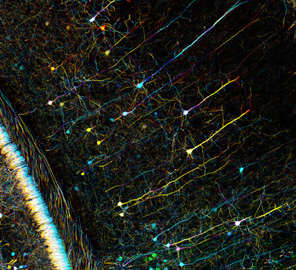 New genomic research reveals that emotions and behavior are shaped by a second layer of organization in the brain, reliant on genes.
New genomic research reveals that emotions and behavior are shaped by a second layer of organization in the brain, reliant on genes.
Genomics Among the Biggest of Big Data, Experts Say
 Researchers compared genomic data needs with other big data leaders and found that genomics is poised to be a leader in data acquisition, storage, distribution and analysis.
Researchers compared genomic data needs with other big data leaders and found that genomics is poised to be a leader in data acquisition, storage, distribution and analysis.
Cutting Big Data Down to a Usable Size
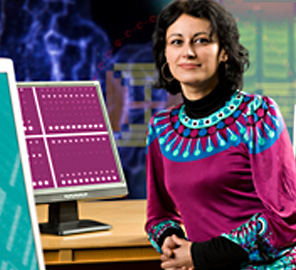 New BD2K grant to researchers at the University of Illinois and Stanford will fund the development of more efficient genomic data compression software.
New BD2K grant to researchers at the University of Illinois and Stanford will fund the development of more efficient genomic data compression software.
Many Experiments for Price of One: Gene Regulation Breakthrough Study
 Computer scientist Saurabh Sinha and colleagues use biological knowledge and bioinformatic algorithms to predict dynamics of gene regulation.
Computer scientist Saurabh Sinha and colleagues use biological knowledge and bioinformatic algorithms to predict dynamics of gene regulation.
New Petition Seeks to Save Elephants, End Ivory Importation in U.S.
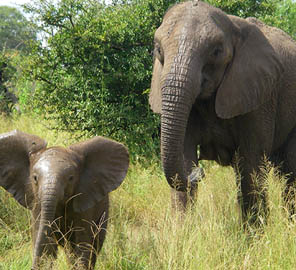 Recent genomic research from Animal Sciences Professor Alfred Roca and others has prompted a petition that calls for the reclassification of African elephants from one threatened species to two endangered species.
Recent genomic research from Animal Sciences Professor Alfred Roca and others has prompted a petition that calls for the reclassification of African elephants from one threatened species to two endangered species.
Study: Gene Regulation Underlies the Evolution of Social Complexity in Bees
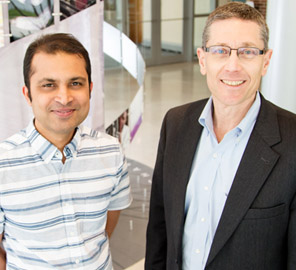 IGB faculty Saurabh Sinha and Director Gene Robinson, with an international consortium of 52 scientists, used comparative genomics to discover evolution of bee society is associated with increases in complexity of gene regulation.
IGB faculty Saurabh Sinha and Director Gene Robinson, with an international consortium of 52 scientists, used comparative genomics to discover evolution of bee society is associated with increases in complexity of gene regulation.
Are We Exterminating One African Elephant by Not Recognizing Two?
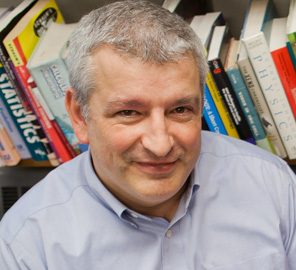 University of Illinois Animal Sciences Professor and IGB member Alfred Roca co-authored the recent literature review “Elephant Natural History: A Genomic Perspective” identifying a need to recognize the forest elephant as a separate species.
University of Illinois Animal Sciences Professor and IGB member Alfred Roca co-authored the recent literature review “Elephant Natural History: A Genomic Perspective” identifying a need to recognize the forest elephant as a separate species.
Illinois and AAAS Co-sponsor Bioengineering Panel
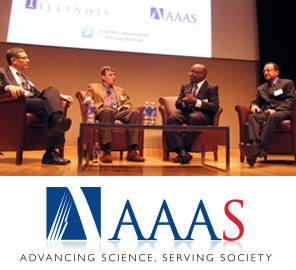 A panel consisting of Gene Robinson, John Rogers, Todd Coleman, and Rashid Bashir discuss the future of bioengineering at "Visionary Frontiers at the Convergence of Biology, Medicine and Engineering" in Washington, D.C.
A panel consisting of Gene Robinson, John Rogers, Todd Coleman, and Rashid Bashir discuss the future of bioengineering at "Visionary Frontiers at the Convergence of Biology, Medicine and Engineering" in Washington, D.C.
Ruby Mendenhall Featured, Spotlight on Poverty and Opportunity Webcast
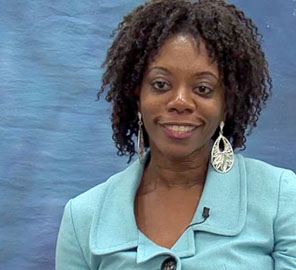 Ruby Mendenhall, Associate Professor in Sociology, African American Studies, was recently featured on the website Spotlight on Poverty and Opportunity speaking on her work with low-income communities in Illinois.
Ruby Mendenhall, Associate Professor in Sociology, African American Studies, was recently featured on the website Spotlight on Poverty and Opportunity speaking on her work with low-income communities in Illinois.
Study Shows Different Species Share a "Genetic Toolkit" for Behavioral Traits
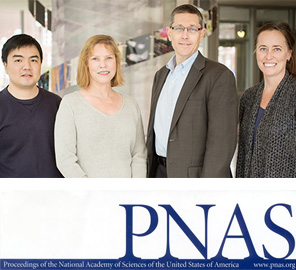 Members of the Gene Networks in Neural & Developmental Plasticity theme found that distantly related organisms share key genetic mechanisms that help them respond to threats.
Members of the Gene Networks in Neural & Developmental Plasticity theme found that distantly related organisms share key genetic mechanisms that help them respond to threats.
Koala Study Reveals Clues About Origins of the Human Genome
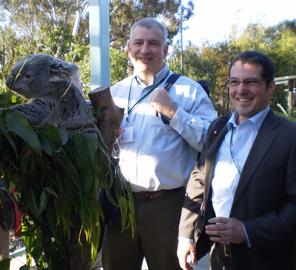 In a recent study led by Professor of Animal Sciences Alfred Roca, scientists discovered that 39 different koala retroviruses were passed down from parent to offspring.
In a recent study led by Professor of Animal Sciences Alfred Roca, scientists discovered that 39 different koala retroviruses were passed down from parent to offspring.
Illinois, Mayo Clinic Collaborate to Revolutionize Genomic Data Analysis
 An interdisciplinary team of researchers will work together in a new NIH Big Data to Knowledge Center of Excellence to create powerful computational tools.
An interdisciplinary team of researchers will work together in a new NIH Big Data to Knowledge Center of Excellence to create powerful computational tools.
Male stickleback fish influence offspring behavior, gene expression
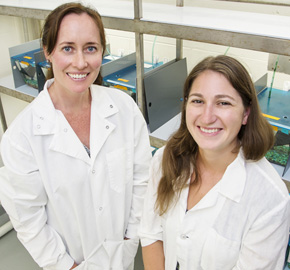 Animal biology professor Alison Bell and doctoral student Laura Stein study how stickleback fish dads influence the behavior of their young.
Animal biology professor Alison Bell and doctoral student Laura Stein study how stickleback fish dads influence the behavior of their young.
Where Will Science Take Us In 20 Years? Blog Provides 2034 Predictions
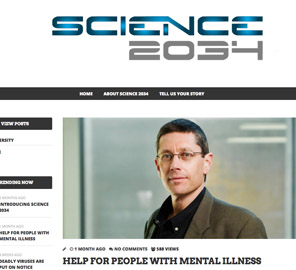 The Science Coalition has launched the new blog SCIENCE 2034, which features predictions of what science and innovation will yield for the future.
The Science Coalition has launched the new blog SCIENCE 2034, which features predictions of what science and innovation will yield for the future.
Researchers boost insect aggression by altering brain metabolism
 Scientists report they can crank up insect aggression simply by interfering with a basic metabolic pathway in the insect brain. Their study, of fruit flies and honey bees, shows a direct, causal link between brain metabolism (how the brain generates the energy it needs to function) and aggression. The team reports its findings in the Proceedings of the National Academy of Sciences.
Scientists report they can crank up insect aggression simply by interfering with a basic metabolic pathway in the insect brain. Their study, of fruit flies and honey bees, shows a direct, causal link between brain metabolism (how the brain generates the energy it needs to function) and aggression. The team reports its findings in the Proceedings of the National Academy of Sciences.
Radio Frequency ID Tags on Honey Bees Reveal Hive Dynamics
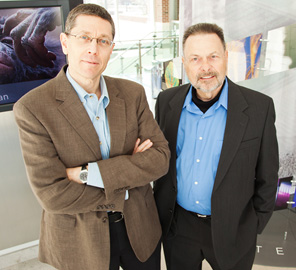 Scientists attached radio-frequency identification (RFID) tags to hundreds of individual honey bees and tracked them for several weeks. The effort yielded two discoveries: Some foraging bees are much busier than others; and if those busy bees disappear, others will take their place. The findings are reported in the journal Animal Behaviour.
Scientists attached radio-frequency identification (RFID) tags to hundreds of individual honey bees and tracked them for several weeks. The effort yielded two discoveries: Some foraging bees are much busier than others; and if those busy bees disappear, others will take their place. The findings are reported in the journal Animal Behaviour.
Scientists track gene activity when honey bees do and don't eat honey
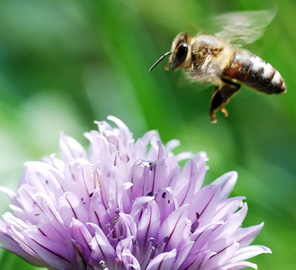 In a new study, described in Scientific Reports, researchers took a broad look at changes in gene activity in response to diet in the Western honey bee (Apis mellifera), and found significant differences occur depending on what the bees eat.
In a new study, described in Scientific Reports, researchers took a broad look at changes in gene activity in response to diet in the Western honey bee (Apis mellifera), and found significant differences occur depending on what the bees eat.
IGB Biologists & Bioinformaticians to Explore Origins of Social Behavior
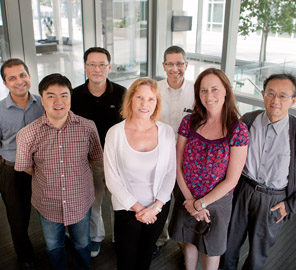 A $3M grant from the Simons Foundation will fund an effort by the Gene Networks in Neural & Developmental Plasticity theme to search for similarities in ways the brains of different species produce social behavior.
A $3M grant from the Simons Foundation will fund an effort by the Gene Networks in Neural & Developmental Plasticity theme to search for similarities in ways the brains of different species produce social behavior.
IGB Member Chosen for Top Paper at Genomics Conference
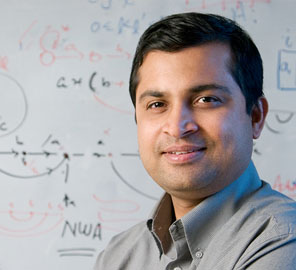 Saurabh Sinha, Associate Professor of Computer Science, and colleagues chosen for Top Ten Paper Award at the recent RECOMB/ISCB Conference on Regulatory and Systems Genomics.
Saurabh Sinha, Associate Professor of Computer Science, and colleagues chosen for Top Ten Paper Award at the recent RECOMB/ISCB Conference on Regulatory and Systems Genomics.
Study tracks brain gene response to territorial aggression
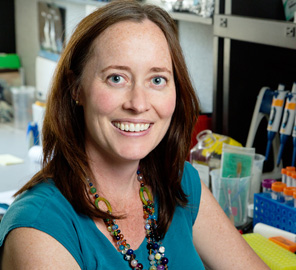 IGB affiliate and animal biology professor Alison Bell and her colleagues tracked changes in the activity of hundreds of genes in the brains of stickleback fish in response to a territorial threat.
IGB affiliate and animal biology professor Alison Bell and her colleagues tracked changes in the activity of hundreds of genes in the brains of stickleback fish in response to a territorial threat.
Awards
Gene Robinson, Swanlund Professor of Entomology (Director) was awarded the 2016 IBANGS Distinguished Investigator Award for the importance of his research discoveries and record of achievement in the area of behavioral and neural genetics.
Rebecca Fuller, Associate Professor of Animal Biology received a Campus Award for Excellence in Guiding Undergraduate Research from the University of Illinois for her excellence in involving undergraduate students in scholarly research.
Roy Dar, Assistant Professor in Bioengineering received a Career Transition Award from the National Institutes of Health (NIH) National Institute of Allergy and Infectious Diseases.
Sandra Rodriguez-Zas, Professor of Animal Sciences received the Senior Faculty Award for excellence in research from the College of Agricultural, Consumer and Environmental Sciences.
Jiawei Han, Abel Bliss Professor of Engineering, received the Engineering Council Award for Outstanding Advising.
Saurabh Sinha, Associate Professor of Computer Science has been named Donald Biggar Willett Professors in the College of Engineering.
Jian Ma, Assistant Professor of Bioengineering was named a 2015-16 Center for Advanced Study Fellow.
Gene Robinson was conferred the degree of Doctor Philosophiae Honoris Causa of the Hebrew University of Jerusalem.
Sandra Rodriguez-Zas, Professor of Animal Sciences was named a University Scholar, a program created to recognize the university’s most talented teachers, scholars and researchers.
Martha L. Gillette, Professor of Cell and Developmental Biology, was among the researchers to receive the 36 Early Concept Grants for Exploratory Research (EAGER) announced by the National Science Foundation. The grants were awarded to enable new technologies to better understand how complex behaviors emerge from the activity of brain circuits.
Ruby Mendenhall was named a Richard and Margaret Romano Professorial Scholar. The three-year appointment is based upon recognition of outstanding achievements in research and leadership on campus.
Saurabh Sinha was selected for the Dean's Award for Excellence in Research from the College of Engineering (formerly the Xerox Awards for Faculty Research). This award honors faculty members on an annual basis for outstanding research, in separate categories for assistant professors and associate professors. Professor Sinha was recognized based on his research, accomplishments, and papers published (or scheduled to be published) during the past five years.

